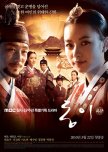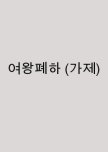 Top 25 MDLer's Favorite Korean Actresses and Their Highly Regarded Performances
Top 25 MDLer's Favorite Korean Actresses and Their Highly Regarded Performances This drama tells the story of three siblings who grew up in the 1970's. Lee Kang Mo, his older brother Sung Mo and younger sister Mi Joo were separated at a young age when their father was killed in a smuggling scheme and their mother also died subsequently. When they are able to reunite years later, they had all reached adulthood and are determined to exact revenge upon the people responsible for their misery. (Source: DramaWiki) Edit Translation
- English
- magyar / magyar nyelv
- dansk
- Norsk
- Native Title: 자이언트
- Also Known As: Jaieonteu
- Screenwriter: Jang Young Chul, Jung Kyung Soon
- Director: Lee Chang Min, Yoo In Shik
- Genres: Thriller, Business, Romance, Melodrama
Cast & Credits
- Lee Bum Soo Main Role
- Park Sang Min Main Role
- Hwang Jung Eum Main Role
- Joo Sang Wook Main Role
- Jeong Bo Seok Main Role
- Park Jin Hee Main Role
Reviews

The writing is a bit sketchy in the initial episodes, with extra servings of trauma and some odd lapses in logic. However, the child actors are terrific (why hello, future stars!), and they morph into equally terrific adult actors. The male characters are particularly nuanced, as we watch two generations struggle to drag themselves and their country out of dire poverty. It isn’t always pretty, and I appreciated the show’s willingness to give all of its characters dark edges, especially since it’s equally willing to give them all moments of insight and grace. The female characters initially tend towards angelic but dim or shrewish and evil, but they also become more complex as the show progresses.
Keeping a 60 episode show engaging is no easy task, and Giant does it with sophistication, style and humanity. It has plenty of “big” moments, but it never forgets that even the most ordinary activities can be dramatic. It finds poetry in mud flats and rock piles, and in the rough-edged men fighting to build a nation from them at any cost.
Was this review helpful to you?

This review may contain spoilers
Giant is an epic about the life&love of 3 siblings during highspeed urban development of Gangam
"Giant" offers a dramatically stirring ride through 4 decades of recent South Korean history - 60 episodes tell a touching, upsetting, emotionally stirring and complex story set in the context of a turbo-fast urban development process in Seoul, south of the Han River: Gangnam.In passing, those episodes tell the story when Seoul and its people had to deal with a phenomenal population explosion: in 1953, 1 million people lived in Seoul. In 1960 it was 2.45 million and in 1970 it was already 6 million. Visions and plans were in demand, as were quick practical solutions and investments. Real estate speculation created a veritable gold rush atmosphere. "Giant" is about these 'gold diggers' in particular. (...and this hype about real estate speculation in Gangnam hasn't stopped until today...)
"Giant" is an epic. It is a monument and a memorial to the efforts and sacrifices of many people. The autocratic (and also often corrupt methods) of urban development become comprehensible if one considers them against the background of their time: the military dictatorship, which was inevitably characterized by the powerful influence of persons with military background in political and social decision-making processes (if you like see side note below). Instead of technical arguments and detailed examination, influence, money, bribery and position often had the say at the crucial interfaces.
If you pay a little more attention to the seemingly irrelevant details, "Giant" provides a crash course in recent South Korean history. (If you don't know or care about it, some things might be rather arbitrary or interchangeable.) In any case, the series has reached the South Koreans. In the course of its success, a further 10 episodes were added to the originally planned 50 episodes. For 40 percent of the viewers, "Giant" ranked first at the end of the 60th episode in 2010.
Ok, admittedly, there are 60 episodes. But when the time is right, you can confidently get involved. "Giant" is worth seeing. The story is told in a colorful way and played fantastically. It is emotionally gripping, touching, exciting. We accompany the protagonists over almost half a century: from their childhood in the 1970s to the year 2010. This means that actors can also show what they are made off by playing the protagonists as young. (Today they are stars of the 2020s: Yeo Jing-goo and Kim Soo-hyun). All in all, without exception, everyone delivered a strong performance. Last but not least, villain number 1, Jeong Bo-seok as Jo Pil-yeon, who holds his role brilliantly from the first to the last episode, is vividly remembered with his ice-cold laugh, which never got stuck in his throat - even in the most adverse headwinds.
The KDrama takes a sophisticated approach in telling the historical events and dynamic processes of the time through the eyes and hearts of three siblings. So, we tightly follow these stirring personal processes on the one hand, and several dubious machinations of the (fictitious) masterminds (who are quite close to the real events - see below) on the other. Against the historical background of those decades, in spectacular loopings the dramatically revolving wheel of fortune is allowed to turn to the fullest again and again, emotionally throwing the audience wildly around. KDrama shows it all.
"Giant" offers numerous stirring twists and upsetting turns in matters of love and rivalry, guilt and atonement, revenge and forgiveness. It won't be boring. All this surrounded by an indeed spectacular Gangnam urban development dynamic - at a dizzying high speed from no man's land to the hip trend district - which was not least favored by the autocratic control.
-------------------- SIDE NOTE: --- Gangnam highspeed development thanks to autocratic urban development during military dictatorship ----
There are details of everyday life during the PARK DICTATORSHIP: the influence of the military in all sorts of social issues, the secret service KCIA, which interfered unrestrainedly in domestic political issues and investigations and even used torture to interrogate people. Positions of power, like mayors, being appointed according to their military background and the level of their allegiances with Park. The backroom networks where the places, where the real decisions were made.
There are details of the subsequent DICTATORSHIP under CHUN DO-HWAN: the curfew during the state of emergency under martial law, for example. The brutally crushed democratic aspirations. The establishment of educational concentrations camps - "Giant" refers to the Samchung Camp in Yeoncheon, Gyeonggi, which was set up under the guise of fighting the threat posed by North Korean Communism. In this peculiar concentration camp, at least 60,000, probably even up to 100,000 innocent South Korean citizens were held captive in the former military prison under the most brutal conditions without an arrest warrant. There was talk of 'cleansing'. In fact, it was pure arbitrariness, verging on sadism.
And finally there is TRUE DEMOCRATIZATION of the system after the first free election for a long time - however, sadly, being faced with the same personnel (in autocratic tradition) in decisive ranks.
It has been proven that the military past in many political leadership positions during the Park dictatorship was not accidental but intentional. Among other things, of 6 Seoul mayors of that time (these were appointed, not elected), 3 had a military background. The other three were known for their expressed loyalty to the Park regime. Such people of Park's trust got the chance and used their past, their networks and opportunities as a robust standing, from where they set visionary course for the future of the capital with all means. Otherwise, rarely had the urbanization of Gangnam been as rapid as during those decades.
Gangnam beauty industry, the relevant corporate headquarters of the KPop industry, the suites and penthouses of the richest of the rich in the most exclusive apartment blocks of the country, temples of consumption of numerous luxury brands, hotspots for leisure and culture as well as some of the most prestigious schools contribute to Gangnam's dazzling image today. Gangnam with a population of over 1/2 Million recently is one of the economically most important urban districts of Seoul, in whose towers, which rise ever higher into the city sky, the very large companies of the country have their headquarters. A central transport hub has emerged and even the Ministry of Trade, Industry and Energy has taken political presence here.
It's hard to believe that 60 years ago this district south of the Han River (강 - Gang = river and 남 - Nam = south) stood for flood plains and agriculture - especially cabbage fields and plantations with the Korean Nashi pear. It was an unattractive no man's land, considering you want urban city life.
This had changed in the 1970s after Seoul faced a massive population explosion, the consequences of which the city could not cope with under the given circumstances. Previously, the city's political, economic and cultural heart had been on the north bank of the Han River in Gangbuk - in fact, since the dawn of the Joseon Dynasty. But between 1953 and 1960, in just 7 years, the population had more than doubled, practically 'overnight', from 1 million to 2.45 million. In 1970 it had already reached around 6 million! Nobody had been prepared for this. Chaos was the result. Infrastructure collapsed, slums literally sprouted out of the ground.
That's when the vision of a whole new district south of the river was born. In 1966 it was announced for the first time that the population should be redistributed in the future: 40 percent of the population should live in the northern area, 60 percent in new and densely built Gangnam. A dream in distant clouds, that's how it seemed back then, because there was nothing there at that time.
In the 1970s, the planning took on more concrete forms. Gangnam has been defined as one of Seoul's 3 central urban cores alongside the historical old town and the political center of Yeouido. In order for this to happen, construction of today's Hannam Bridge had already begun in 1966. In 1969 this important connection was completed and the first milestone was reached. Also, the Gyeongbu Expressway was opened in 1970. However, to speed up the development, Gangbuk was deliberately disadvantaged and Gangnam was privileged, for example with tax breaks. An express bus terminal was built, elite schools were relocated and comfortable new apartments were advertised. Stylish urbanity was marketed on one plot, yet rural wasteland was right next to it. The contrasts were enormous.
Yet, residential buildings started to grow at breakneck speed and people began to move to the new southern neighborhoods.
Strictly speaking, Gangnam and the education of an elite school district also marks the beginning of the now enormously profitable private education market and some social excesses, which to this day provide the KDrama market with plenty of material for the most bizarre stories. In addition, speculation in real estate became fashionable and became a new hobby for (more or less) rich wives. Eventually, Gangnam also earned its reputation as an entertainment district, with clubs staying open all night.
The story of Gangnam reads dazzling and spectacular. But the city itself initially had no money for all the investments that were necessary to develop the land. It relied on income from sale of the land set out for recompense from the land readjustment programs. All started slowly, because interested buyers withdrew, disappointed since there was hardly anything really urban in Gangnam in the early 1970s. In order to speed up the processes, a law was passed in 1972 that deliberately relaxed the existing tax regulations relating to property regulations. From then on, profits from real estate speculation were practically tax-free. Trade tax, property tax, etc. were also waived for the next 6 years. This temporary incentive for investors proved extremely successful, but also problematic. This brought speculators onto the scene, who didn't care at all about professional urban development as such.
Thus, remarkable performance comes with sad collateral damage. The catastrophes associated with sloppiness in construction and human fault in the wake of corruption pave the decades just as much as the milestones of urban development. The biggest accidents in this context were, for example, the collapse of the Wawoo residential complex and the Seongsu Bridge. (Others followed at regular intervals. Every decade has its own list...)
Autocratic regulations, the need for speed and the money involved also encouraged flourishing and unchecked corruption regarding insider trading with real estate speculation, building tenders and bidding. Bribery shaped the entire business world. This also promoted a climate in which - if someone was convicted of his illegal activities - he (usually a 'he') was easily released soon later on.
While the giants were able to pocket their gigantic profits without restraint, the population of Gangnam suffered (and still suffers) from housing costs that exceed every measure.
Finally, within this whole developmental process, the lending business has been a crucial and lucrative business since the very beginning until up to date, even if customers and their needs may have changed in the meantime...
Was this review helpful to you?

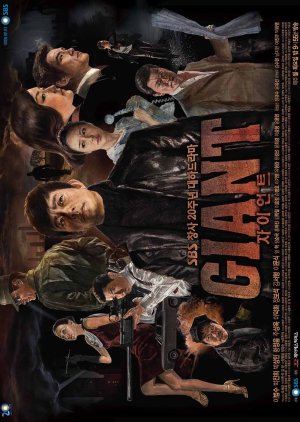







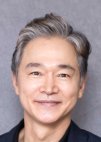

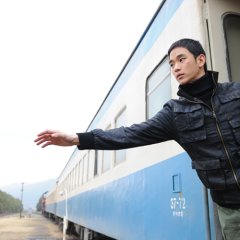
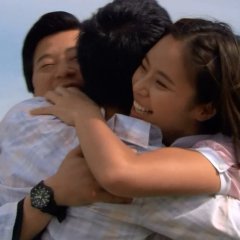
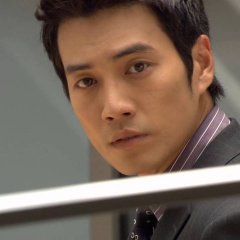

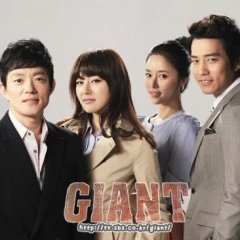

 2
2 1
1















